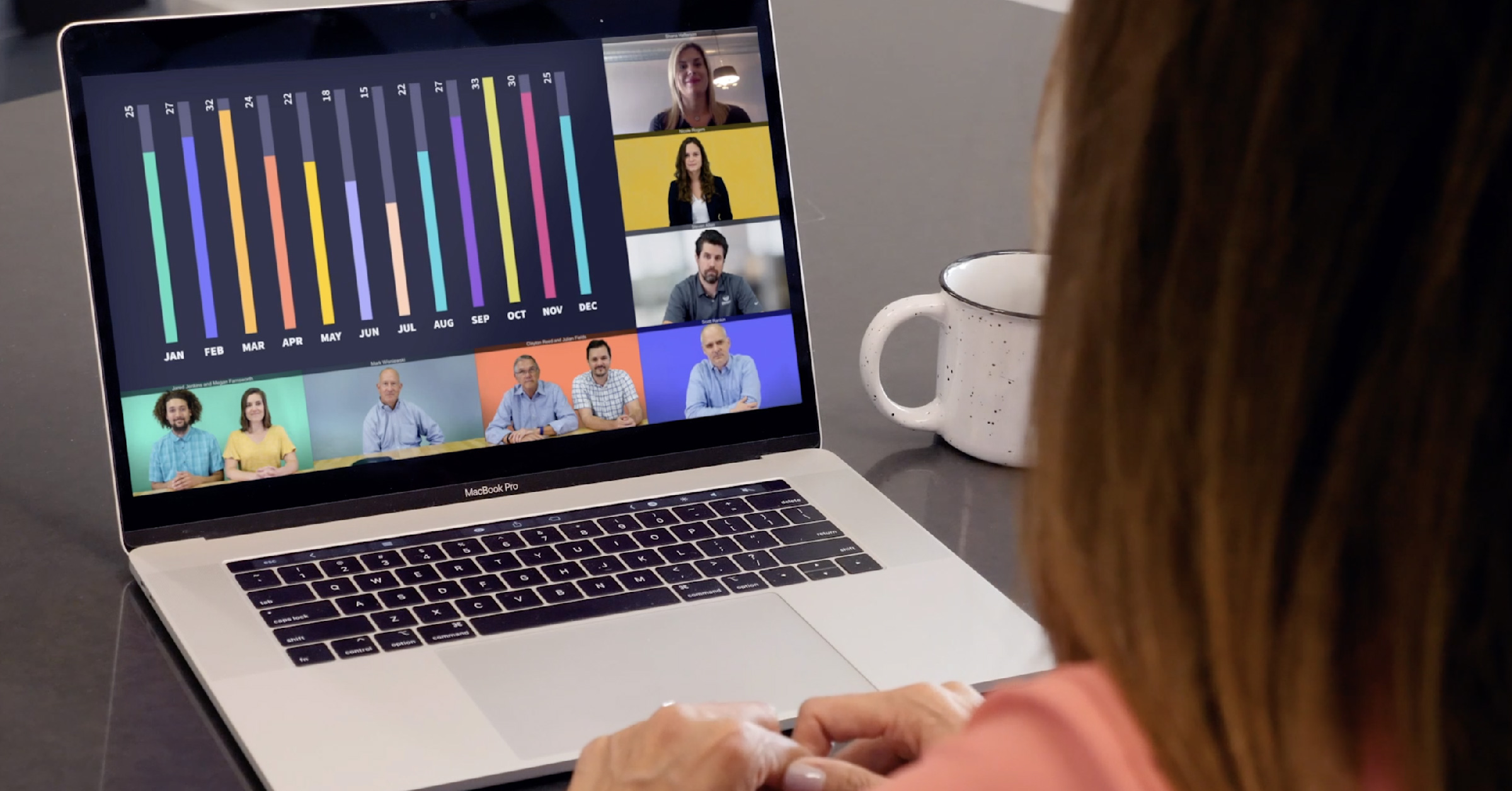
A friend and colleague recently reached out for video conference tips. She is intelligent, young, and attractive, but I wanted to point out that there are many reasons these days to avoid touching your face. In one video a person’s screen froze and during the rest of their conversation. Unfortunately, the individual had just touched their lips, so it really looked like a nose-picking moment.
Some of those mistakes are recoverable and some aren’t, yet most are entirely avoidable. These tips can help even the most senior and technologically savvy candidates navigate popular videoconferencing services like Zoom, BlueJeans, Webex, Google Meet, or Skype... etc.
If life happens, roll with it. Sure it’s amusing when someone’s awkward moment goes viral — like that talking head whose children popped into his tranquil BBC interview on foreign policy, and chaos ensued (there’s even a virtual background of this moment). But most administrative job candidates don’t want to be that guy. And the backdrop feature is not perfect in blocking out the realities of family life at home.
Still, if some awkward moment disrupts your virtual job interview, go with it. Pick up your toddler, give your dog a bone, and continue the interview. Everyone is much more understanding of awkward live moments during this time of quarantine. For young children, try leaving a note with drawings to remind them what they can do for the hour, or, if needed, set them up next to you with their own "work" and crayons and introduce them before the meeting.
How you handle an unexpected interruption — assuming you do so gracefully and not by blowing up at the intrusion — can offer a human connection with the hiring committee that is sometimes lacking in virtual interviewing.
Preemptive muting is your friend. It helps keep those pesky distractions in check. Play it safe if you are worried about a sudden meow, bickering children, or loud blenders in the background. Leave your screen muted and hold down the key to unmute only when you want to speak so that noise does not interrupt the other side of the conversation as the committee speaks. Shut down the email and any online chatting so you do not get noisy notifications or pop-ups.
On Zoom, you can use the spacebar to open your microphone. On BlueJeans, press "m." Finding one key is easier than fumbling with your mouse to silence a chirping text message.
Practice like a TV analyst. Search committees are seeking executives and senior administrators who are a good fit with campus culture, but it is hard to make a personal connection and convey enthusiasm over a medium that is more like television than our regular day-to-day interactions.
The key is to practice the way you communicate as professionals do on television. Write out your talking points. Rehearse them in front of a camera. Practice repeating the question in your answer. There is a record feature on most videoconference programs. Record a mock interview, and watch yourself to make sure you convey energy.
When it’s time for the actual interview, however, don’t try to mimic exactly what you said in your practice sessions. What matters most is to be fully attentive during the interview and ready to improvise based on what you hear. Active listening is even more important in a video interview because you can’t take in as many visual cues as you do in a face-to-face conversation.
Keep your notes handy on your screen. Most videoconference programs offer a minimized view box of the speaker — a picture inside a picture. Make sure you know how to use that feature. It allows you to focus on the interviewers while still being able to sneak a peek at other boxes on your screen with, say, your notes or the job’s leadership profile. That’s actually an advantage of video interviews since it’s something you can’t easily do in person. (During your mock interviews, practice having your notes in view on your laptop screen.)
Make eye contact with the camera. Try to keep your eyes on the camera as much as possible, except in those quick moments when you are scanning your notes or glancing at the faces of search-committee members.
Experiment with the settings in advance. If you don’t know much about taking a good selfie, ask someone who does. You want to center yourself on the screen, so your torso is visible and you don’t look like a floating head. Once you see that you are eye-level with the camera, try not to look at yourself too much. It is human nature to become more self-conscious or distracted as you talk into a "mirror." Practice resisting that instinct.
Usernames matter. Especially if you are borrowing someone else’s device or account, make sure you retype the username and include your first name. Our search team recently had an interview in which a child’s nickname loomed below the candidate onscreen, which was both confusing and distracting.
A friend with a keen eye for detail can assist with a practice call and confirm you have the right professional details.
Keep your cellphone handy (but silent). If your computer freezes, give it a second before shutting down. Check your internet connection. If all else fails, log out. Have the number of your main contact saved in your cellphone, and call if things go south.
You can practice this, too. Get a sense of rhythm for a slightly more delayed microphone setting, and pause when you complete your main idea to allow for interruption and questions in case there is an internet delay.
Smile early and often. You are on camera with your future colleagues. Smile (naturally), sit up straight and speak clearly. Enjoy the chance to talk about your proudest moments.
https://www.youtube.com/watch?v=ZT0y_OCkAk0